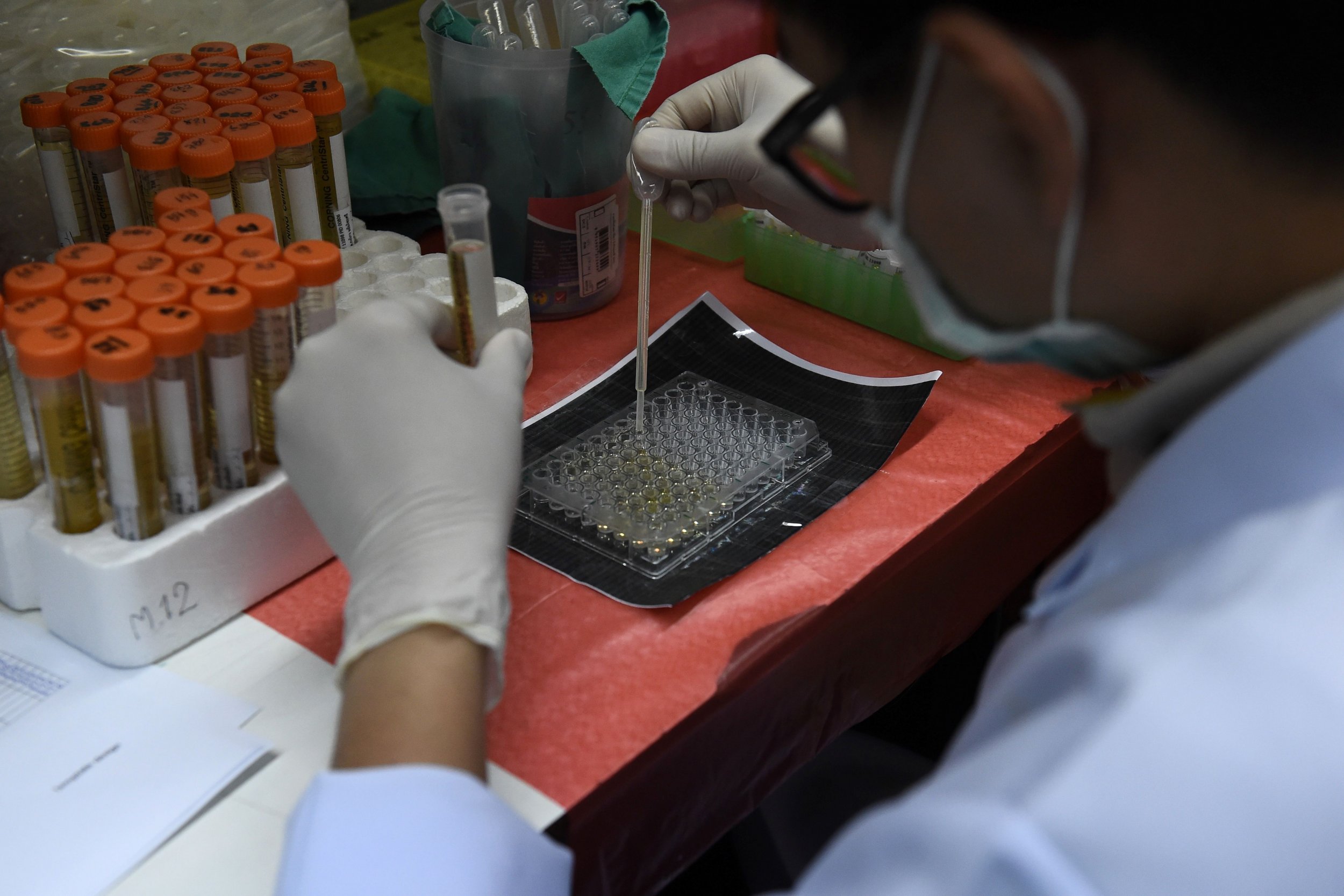
The simple worm sometimes behaves differently from others with the exact same genes—an evolutionary advantage that confounds basic genetics, according to a new study.
Researchers studying why the tiny creatures behave a certain way at different life stages found that worms with identical genes and living in the same environment will nonetheless engage in atypical behavior.
Related: Weird Head Shape Personality Study Links Sex Drive to Vocabulary While Trying to Debunk Phrenology
The study, which is published in the journal Cell, involved 50 newborn C. elegans roundworms all living in separate containers. Using a newly developed system, scientists were able to record the worms' behavior for their entire life cycle, which lasts about 50 hours.
"From an evolutionary point of view, we can't have everyone going off the cliff all at once like lemmings–someone's got to be doing something different for a species to survive," said Rockefeller University professor and lead author Cori Bargmann, who studies the biology of the brain.
Related: Are You Charismatic? Scientists Say These Six Questions Show if You Have a Magnetic Personality
Bargmann and her colleagues specifically looked at how the worms acted when they looked for food and they found that a majority began their search at the same time in development. However, some of the worms behaved differently.
It can't be genetic differences because all the worms had the exact same genes. But the varied behaviors could be due to differences in how their nervous systems develop or how chemical messengers in the brain function, Bargmann explained.
"There are patterns at every stage of life that are different from the patterns at other stages, and with the system we created we can see that really clearly in ways that are surprisingly complex and robust," she said. "We can also observe something as complex as individuality and start to break down the biology behind it."
Worms are far less complex organisms than humans, but we share many similar genes, which is why scientists often use worms for research. In addition to behavioral studies, they've also been used to shed light on aging and cancer, according to the Lundquist Lab at the University of Kansas.
Uncommon Knowledge
Newsweek is committed to challenging conventional wisdom and finding connections in the search for common ground.
Newsweek is committed to challenging conventional wisdom and finding connections in the search for common ground.
About the writer
To read how Newsweek uses AI as a newsroom tool, Click here.








